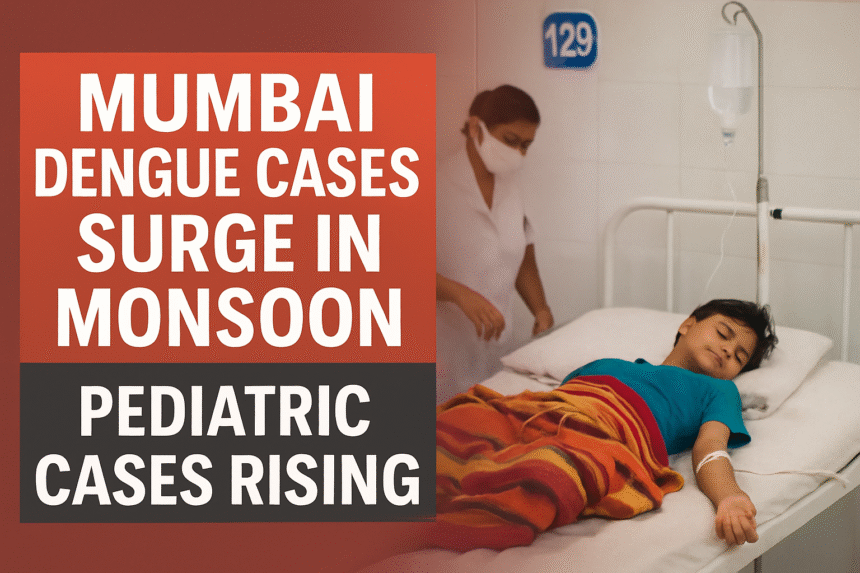Mumbai is currently facing a sharp rise in dengue cases as the monsoon season intensifies. Hospitals across the city are reporting an increase in pediatric patients, and health authorities are urging residents to stay alert.
Contents
1. Rising Pediatric Cases
- Children are among the most vulnerable to dengue, with several requiring hospitalization due to high fever and viral complications.
- Doctors report that late diagnosis often leads to more severe symptoms, so early medical attention is crucial.
2. Hospitals and Authorities on Alert
- Major civic and private hospitals in Mumbai have increased monitoring of suspected dengue cases.
- Health authorities are conducting awareness campaigns in high‑risk wards and housing societies to encourage mosquito control.
- BMC teams are performing anti‑larval treatments and checking for stagnant water across localities.
3. Prevention Tips for Residents
To reduce the risk of dengue infection this monsoon:
- Avoid stagnant water in buckets, plant pots, and terraces.
- Use mosquito repellents and nets to prevent bites.
- Wear full‑sleeved clothing, especially during early morning and evening hours.
- Seek medical attention immediately if fever, rash, or body pain occurs.
4. The Bigger Picture
- Mumbai’s dense urban areas and heavy monsoon rains create ideal breeding grounds for mosquitoes.
- With the number of pediatric cases rising, doctors emphasize that timely testing and treatment can save lives.
- Civic officials continue to urge citizens to cooperate with health inspections and community clean‑ups.
The dengue surge in Mumbai is a serious seasonal challenge. With early medical intervention and proper preventive measures, the city can control the outbreak and protect vulnerable children from life‑threatening complications.

